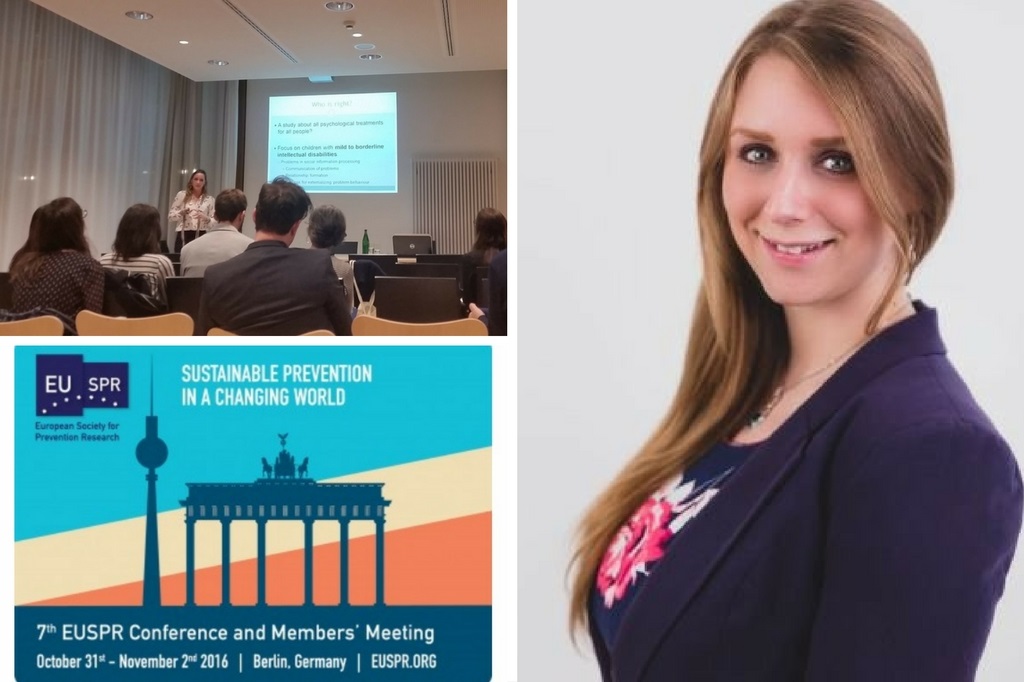Dr Kimberley Hill shares research into alcohol misuse at prestigious annual European conference
Date 2.11.2016

Psychology Lecturer Dr Kimberley Hill has just returned from Berlin, where she shared her recent research at the 7th annual European Society for Prevention Research (EUSPR) conference.
The European Society for Prevention Research promotes the development of prevention science – a discipline which aims to prevent or moderate human problems before they occur. Dr Hill presented her research into alcohol misuse to an audience of researchers, policy makers, practitioners, government officials and academics. Other prevention research subjects presented at the conference included smoking, drug and substance addiction, gambling and teenage pregnancy.
“Alcohol misuse is a pressing area of public health concern, particularly for young adults who are most at risk of alcohol-related harm,” explained Dr Hill.
“Alcohol remains one of the biggest global health risks for death, illness or harm. Unfortunately, prevention scientists have long been disappointed by the limited effectiveness of dominant theories and models which aim to reduce excessive alcohol consumption. Many of these approaches assume that health-risk behaviours are driven by rational decision making processes, but we know that behaviour is often unplanned and decision making irrational.”
“Changing individuals’ attitudes and beliefs to consume excessive amounts of alcohol does not always translate into prevention of harmful consumption. Researchers must also understand the role that the contexts in which the behaviours are carried out play a part.”
Dr Hill’s research focuses on the main locations in which young people can access alcohol. This includes shops, pubs, nightclubs and community venues. Using a range of methods, Dr Hill’s work provides practical recommendations and implications for identifying individual and environmental factors that potentially aggravate problematic alcohol-related behaviour.
Dr Hill explained: “While these contexts are important for young people, both in terms of the physical and social action opportunities that they afford them, a growing number of research studies have associated features of these environments with problematic alcohol-related behaviour.”
“For example, increased consumption and harm has been associated with certain types of events, promotions, crowding, noise levels and other functional features. The clustering of on and off-licensed premises is also problematic in terms of addressing alcohol-related issues”.
Dr Hill’s work with students and on-campus contexts has also highlighted some of the challenges in reducing alcohol-related harms.
“A marked increased in pre-loading behaviour indicates that many individuals are intoxicated before entering premises, which further complicates premise management and harm reduction”
Dr Hill is also committed to supporting researchers who are in the early stages of their careers. As one of the co-founders of the Early Careers Forum, Dr Hill is involved in the coordination of early career support, events and international initiatives. While in Berlin, Dr Hill was invited to convene a workshop which focused on how to obtain research funding.
Dr Hill’s attendance in Berlin was supported by the EU co-funded Science for Prevention Academic Network (SPAN) project.